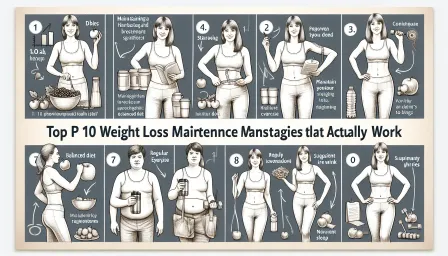Vegetarian Diet and Cancer: A Comprehensive Guide to Risk Reduction

Explore the relationship between a vegetarian diet and cancer. Learn how a plant-based diet can help reduce cancer risk and improve overall health.
The relationship between diet and cancer has long been a topic of scientific interest. As more people turn to plant-based lifestyles, curiosity about the connection between a vegetarian diet and cancer prevention grows. This article delves into the potential benefits of a vegetarian diet in reducing cancer risk, offering a comprehensive guide based on current research and expert opinions.
Understanding the Link Between Diet and Cancer
Cancer is a multifactorial disease, meaning it results from a combination of genetic, environmental, and lifestyle factors. Diet, a major lifestyle component, has been extensively studied for its role in cancer prevention and management. The foods we consume can influence our risk of developing cancer, positively or negatively.
Dietary Patterns and Cancer Risk
Studies consistently show that diets rich in fruits, vegetables, whole grains, and legumes are associated with a lower risk of various cancers. Conversely, diets high in processed meats, red meat, and sugar-sweetened beverages have been linked with an increased risk of certain cancers.
How a Vegetarian Diet May Reduce Cancer Risk
A vegetarian diet, which excludes meat and often other animal products, places a strong emphasis on plant-based foods. Here are some key ways this diet might help reduce cancer risk:
Antioxidant-Rich Diet
Plant-based foods are rich in antioxidants such as vitamins C and E, carotenoids, and flavonoids. These compounds help protect cells from oxidative stress and damage, which can lead to cancer development.
High Fiber Intake
Vegetarian diets tend to be high in dietary fiber. Fiber aids in digestion, helps maintain a healthy weight, and may reduce the risk of colorectal cancer by promoting regular bowel movements and acting as a prebiotic to support gut health.
Phytochemicals and Their Benefits
Phytochemicals, naturally occurring compounds found in plants, have been shown to have anti-cancer properties. Examples include sulforaphane in cruciferous vegetables, resveratrol in grapes, and lycopene in tomatoes.
Healthy Body Weight
Maintaining a healthy body weight is crucial for cancer prevention. Vegetarians often have lower body mass indices (BMIs) compared to non-vegetarians, a factor associated with a reduced risk of various cancers.
Scientific Studies Supporting the Benefits
Numerous studies have explored the link between vegetarian diets and reduced cancer risk:
Adventist Health Studies
Research from the Adventist Health Studies, which involve large populations of Seventh-day Adventists (many of whom follow vegetarian diets), has revealed lower overall cancer incidence and reduced risks for specific cancers such as colorectal, breast, and prostate cancers among vegetarians.
European Prospective Investigation into Cancer and Nutrition (EPIC)
The EPIC study, involving over half a million participants across Europe, found that higher consumption of fruits, vegetables, and dietary fiber was associated with lower risks of many cancers.
Practical Tips for Adopting a Vegetarian Diet
If you're considering a vegetarian diet to reduce your cancer risk, here are some practical tips to help you get started:
Focus on Variety
Ensure your diet includes a wide variety of fruits, vegetables, grains, legumes, nuts, and seeds to obtain a broad spectrum of nutrients and phytochemicals.
Minimize Processed Foods
While vegetarian diets can be healthy, they can also include processed vegetarian foods that are high in added sugars, unhealthy fats, and sodium. Opt for whole, minimally processed foods whenever possible.
Consider Nutritional Supplements
Some nutrients, such as vitamin B12, vitamin D, and omega-3 fatty acids, may be less abundant in a vegetarian diet. Discuss with a healthcare provider whether supplements are necessary for you.
Potential Challenges and Solutions
Transitioning to a vegetarian diet may come with challenges. Here’s how to address some common concerns:
Protein Intake
Many worry about getting enough protein on a vegetarian diet. Plant-based protein sources include legumes, tofu, tempeh, quinoa, and nuts. Ensure your meals include a variety of these to meet your protein needs.
Social and Cultural Factors
Social gatherings and cultural practices often revolve around meat. Communicate with friends and family about your dietary choices and suggest vegetarian-friendly venues or dishes.
Reading and Understanding Food Labels
Learning to read and understand food labels can help in making informed choices. Look for whole food ingredients and scrutinize labels for hidden animal products in processed foods.
Conclusion
While no diet can guarantee cancer prevention, scientific evidence suggests that a vegetarian diet rich in plant-based foods can play a significant role in reducing cancer risk. By including a variety of antioxidant-rich fruits and vegetables, high-fiber grains and legumes, and minimally processed foods, you can build a dietary pattern that supports overall health and well-being. Consulting with healthcare providers and nutrition experts can provide personalized recommendations to help you make informed dietary choices.
Adopting a vegetarian diet is a powerful step towards a healthier lifestyle and potentially lowering your cancer risk.



























